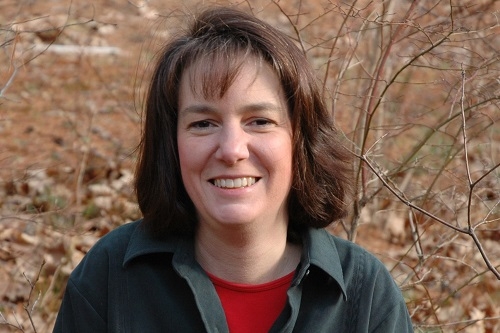Melissa Stewart ’90 studied biology at Union College before earning an M.A. in journalism (with a certificate in science and environmental reporting) from New York University. Today she’s an award-winning author of more than 180 science books for children and feels lucky to have a job she loves. Her titles include Seashells: More than a Home; Can an Aardvark Bark?; and No Monkeys, No Chocolate. She is also co-author of Perfect Pairs: Using Fiction & Nonfiction Picture Books to Teach Life Science, K-2 and Perfect Pairs: Using Fiction & Nonfiction Picture Books to Teach Life Science, 3-5. The natural world has always captivated Melissa. She’s made it her career – and mission – to share science with readers of every age. Because Melissa believes that nothing brings writing to life like firsthand experience, researching her books has included exploring tropical rain forests in Costa Rica, hot-air ballooning over migrating wildebeest in East Africa, and swimming with sea lions in the Galapagos Islands. Melissa, who also speaks regularly at schools, libraries and conferences for educators, maintains the acclaimed blog, Celebrating Science. She is on the board of advisors of the Society of Children’s Book Writers and Illustrators and a member of the American Association for the Advancement of Science.
What are the most challenging and rewarding aspects of your career or volunteer activities?
The most challenging part of my career is receiving rejections from publishers, which is an inevitable part of the writing process no matter how many books you’ve published. The most rewarding part is presenting to children during school visits.
Who inspired/inspires you, both professionally and personally?
The amazing children I meet all across the country. They always teach me something new about myself and the way we look at the world.
What advice would you offer today’s women students, not just at Union, but across the country?
As you plan for and begin building a career, always think about how you achieve life-work balance. It’s so important, but it’s something you never learn about in school.
What was your most formative experience at Union?
My relationship with Professor Karen Williams. I owe my entire career to her sage advice. When I was writing my senior thesis on sequencing fruit fly DNA, she showed me a related article in Discover magazine. She told me I could have written it, and that perhaps writing would be a good job for me. I’m so grateful that Karen saw a talent in me that I didn’t know I had. If it hadn’t been for her, who knows what I’d be doing now. I might have a job that I hate.
